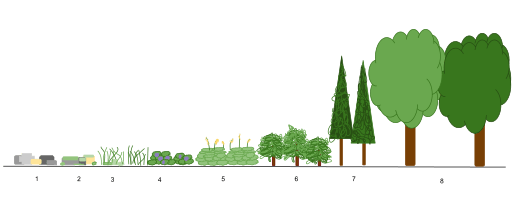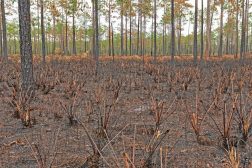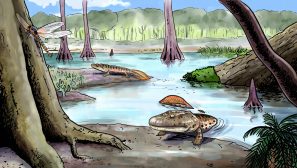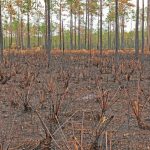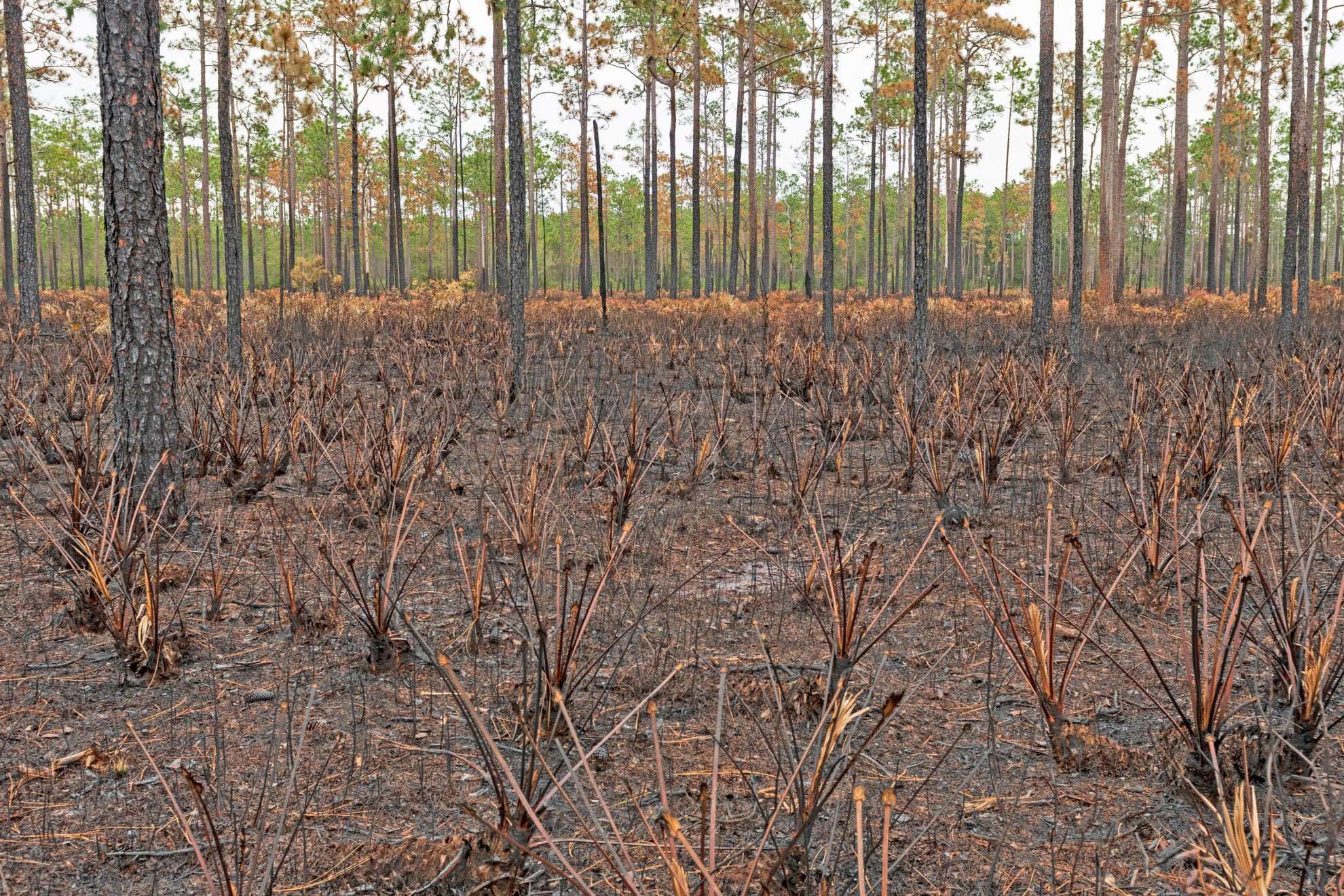
Following a wild fire in a forest land, an ecological succession may ensue.
Definition
noun, plural: successions, word origin: Latin “successio”
1. (general) (a) The act of following in order or sequence; (b) A following of things, events, people, or ranks after another in a sequence of time, as in a succession of disasters.
2. (ecology) The directional and progressive change of communities in a given area over time. There are two types of succession: primary and secondary.
Supplement
In ecology, ecological succession as defined above refers to the progressive succession of ecological communities over time. The idea of ecological succession was credited to Jean-André Deluc (Swiss geologist and meteorologist) and to Adolphe Dureau de la Malle (French naturalist) in the 19th century.
Two types of ecological succession:
- Primary succession, wherein a community (typically, lichens and moss) establishes a land not previously occupied, e.g. newly formed land from lava flows, newly exposed land surface, and glacial tills.
- Secondary succession, wherein a new community colonizes a previously inhabited geographical area that was disrupted or destroyed by a disturbance (e.g., fire, flood, tornadoes, hurricanes, epidemic diseases, pest attack, etc.)
